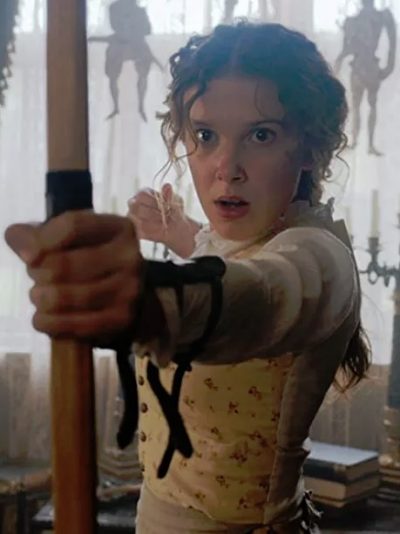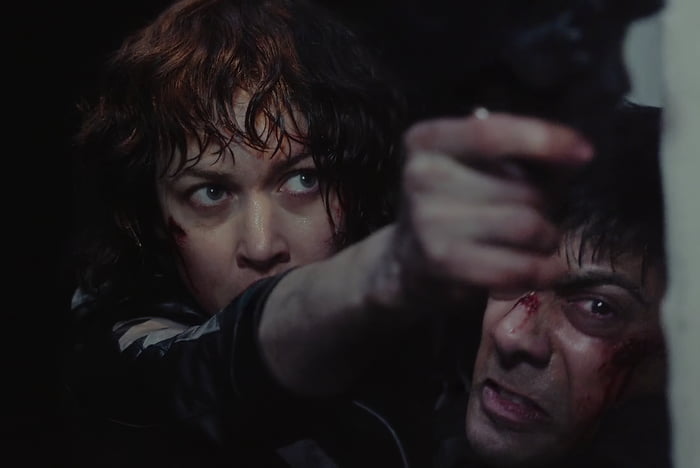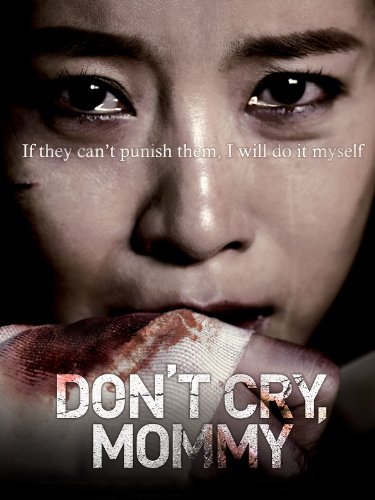★★★
“She’s in the army now…”
 Y’know, considering this is now more than eighty years old, this was likely better than I expected. Chen makes for a solid and engaging heroine, right from the start, when she tricks the residents of a nearby village, who demand she hand over the proceeds of her hunting [I am hoping the dead bird which plummets to the ground with an arrow through it, less than three minutes in, was a stunt avian…]
Y’know, considering this is now more than eighty years old, this was likely better than I expected. Chen makes for a solid and engaging heroine, right from the start, when she tricks the residents of a nearby village, who demand she hand over the proceeds of her hunting [I am hoping the dead bird which plummets to the ground with an arrow through it, less than three minutes in, was a stunt avian…]
Equally quickly, we begin to see wrinkles in the storyline, which might be unexpected if you have only seen the Disney versions. The first of these, is that Mulan’s deception here takes place with the agreement of her parents. She doesn’t sneak out with her father’s sword in the middle of the night, to take his place in the conscripted army of the Emperor. Her martial tendencies have been at least tacitly encouraged: according to Mom, it was her father who taught her the use of the bow and spear, since she was a little girl.
Mind you, with Mom saying things like, “Dying on the battlefield is much more glorious than dying at home,” no wonder Mulan comes up with the idea of being Dad’s stand-in. Her parents aren’t exactly happy about it, but they do understand the situation, and accept her decision. This pro-military stance is something which runs through much of the film. Before leaving, Mulan says, “Father, I thank you for teaching your daughter how to fight. You are allowing me to fulfill my duty to the country, and my filial duty to you… You have granted your daughter her dearest ambition – to be of some use to her country.”
Given this came out during the Japanese occupation of China, the theme of “Let’s all unite and do our part to defeat the invaders” seems rather brave. Though oddly, when the film was released, it provoked riots in which copies of the film were burned, due to rumours the director had collaborated with the Japanese to get it made.
The second most obvious change is the time-frame. Mulan doesn’t just knock off the barbarians and return home in a month or two. No, she goes career, eventually rising to become marshal of the army, due to her bravery and smarts, as well as helping uncover a double-agent high up in army command. It’s twelve years before she is able to see her parents again, though she looks suspiciously similar to when she left. It likely helps she doesn’t have to rise through the ranks, being able to inherit her father’s position as his “son.”
While the action quotient is, unsurprisingly, fairly low, there’s a cool bit where she goes on reconnaissance, dressed as a woman – so, a woman disguised as a man, pretending to be a woman. Got it. She is caught by two barbarian guards, but bursts into song, distracting them long enough to stab them to death. That’s a first, I think. Though I could have done without the further musical interlude at the end, the romance between Mulan and her long-time friend Liu Yuandu (Xi) is never over-powering, and is more a sidelight than the main attraction.
Obviously, its age and origin have to be taken into account, and expecting modern-day production values would be silly. Yet, allowing for everything, I’ve been considerably less entertained by many more recent films. The whole thing is now on YouTube, with English subtitles, and should you be interested, is embedded below.
Dir: Bu Wancang
Star: Chen Yunshang (Nancy Chan), Mei Xi, Han Langen, Liu Jiqun





 Complete ranking of Enolas
Complete ranking of Enolas There’a a good film in here. Actually, there may be as many as three good films in here. But the way in which they are melded together, manages to rob a good chunk of the power and impact from all of them. We begin by following Mathilde H (Bercot), a war journalist clearly modelled
There’a a good film in here. Actually, there may be as many as three good films in here. But the way in which they are melded together, manages to rob a good chunk of the power and impact from all of them. We begin by following Mathilde H (Bercot), a war journalist clearly modelled  I previously reviewed the ninth volume in the Wardstone Chronicles series,
I previously reviewed the ninth volume in the Wardstone Chronicles series,  For one reason or another, in the last few years Great Britain has become the place to go for medium-budget action thrillers. Examples include the Pierce Brosnan-Milla Jovovich-actioner
For one reason or another, in the last few years Great Britain has become the place to go for medium-budget action thrillers. Examples include the Pierce Brosnan-Milla Jovovich-actioner  If Kurylenko’s character never reveals her name, at least some backstory is given as to why she is such a badass fighter. She used to be an Ukrainian soldier, part of a special forces battalion in Syria. After the death of her brother, she deserted and went to ground, taking menial jobs like this one. So for once we’ve got an explanation, as to why a smaller woman can take on big men who are professional killers. The fact that she is not just throwing them over her shoulder to the wall – like, let’s say, Angelina Jolie in
If Kurylenko’s character never reveals her name, at least some backstory is given as to why she is such a badass fighter. She used to be an Ukrainian soldier, part of a special forces battalion in Syria. After the death of her brother, she deserted and went to ground, taking menial jobs like this one. So for once we’ve got an explanation, as to why a smaller woman can take on big men who are professional killers. The fact that she is not just throwing them over her shoulder to the wall – like, let’s say, Angelina Jolie in  I say that, since this Korean film appears to have been at least a partial inspiration for not one, but two Bollywood films which were recently reviewed here:
I say that, since this Korean film appears to have been at least a partial inspiration for not one, but two Bollywood films which were recently reviewed here:  This is certainly something of a novelty and/or a gimmick. But it’s none the less reasonably effective for it. Templeton – who is a woman, despite her first name, given to her after the character of Christopher Robin in the Winnie The Pooh books – suffered from polio as a young child. This left her with a badly damaged right leg; despite this, she pursued an acting career, and became a regular on soap The Young and the Restless for eight years. While I’ve seen a few disabled action heroes – Daredevil was blind – as far as disabled action heroines go, it’s basically her and Imperator Furiosa from Mad Max. And Charlize Theron wasn’t genuinely short an arm, so advantage Templeten. Though, sadly, she appears to have passed away in 2011.
This is certainly something of a novelty and/or a gimmick. But it’s none the less reasonably effective for it. Templeton – who is a woman, despite her first name, given to her after the character of Christopher Robin in the Winnie The Pooh books – suffered from polio as a young child. This left her with a badly damaged right leg; despite this, she pursued an acting career, and became a regular on soap The Young and the Restless for eight years. While I’ve seen a few disabled action heroes – Daredevil was blind – as far as disabled action heroines go, it’s basically her and Imperator Furiosa from Mad Max. And Charlize Theron wasn’t genuinely short an arm, so advantage Templeten. Though, sadly, she appears to have passed away in 2011. This is a painfully lazy knock-off of a certain, well-known action film, in which terrorists take hostages in a multi-storey building over the festive season. This action is as cover for their actual goal, which is the robbery of a well-secured vault. But one of the inhabitants evades the initial surge, and begins to run interference. They get help and moral support over the airwaves by someone on the outside, and use the air-ducts in the building to avoid detection. Yeah. It’s like that, and you’ll probably understand why my eyes were rolling when we get the line, “Ho-ho-ho, motherfucker.” Now, there’s no doubt the makers openly acknowledge their inspiration. But pleading guilty doesn’t get you out of the crime. At least other, similarly inspired movies, e.g.
This is a painfully lazy knock-off of a certain, well-known action film, in which terrorists take hostages in a multi-storey building over the festive season. This action is as cover for their actual goal, which is the robbery of a well-secured vault. But one of the inhabitants evades the initial surge, and begins to run interference. They get help and moral support over the airwaves by someone on the outside, and use the air-ducts in the building to avoid detection. Yeah. It’s like that, and you’ll probably understand why my eyes were rolling when we get the line, “Ho-ho-ho, motherfucker.” Now, there’s no doubt the makers openly acknowledge their inspiration. But pleading guilty doesn’t get you out of the crime. At least other, similarly inspired movies, e.g.  It has been twenty years since
It has been twenty years since  I reviewed the
I reviewed the